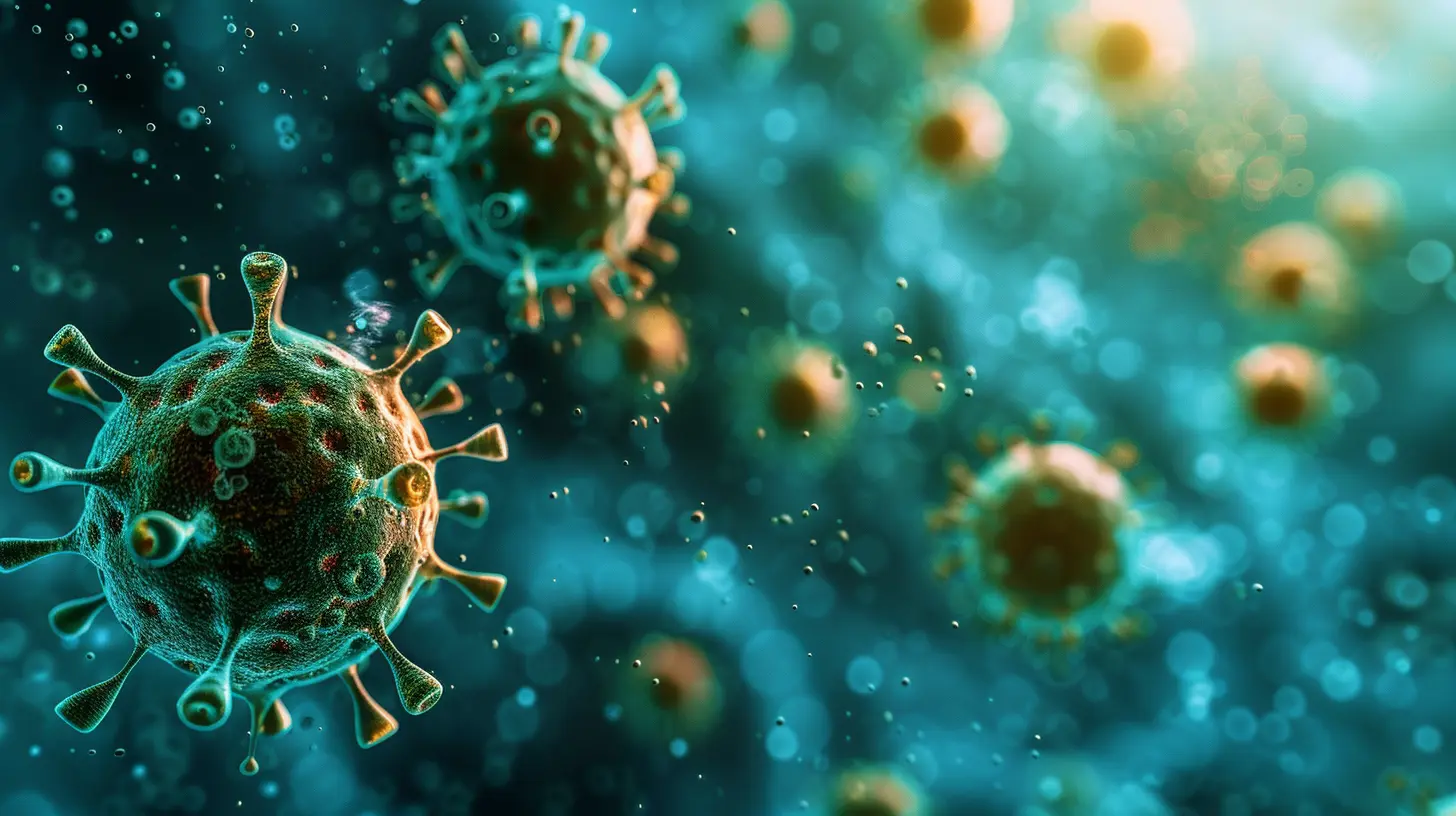Immune System Myths: Separating Fact from Fiction
10 November 2025
Our immune system is a hot topic, especially when flu season rolls around or a new virus starts making headlines. There’s a ton of advice out there, but how much of it is actually true? Unfortunately, myths about boosting immunity run rampant, and many people unknowingly follow advice that has little to no scientific backing.
So, let’s set the record straight! In this article, we’ll debunk some of the most common immune system myths and uncover what really helps keep us healthy.

Myth #1: Taking High Doses of Vitamin C Prevents Colds
We've all heard this one, right? Chugging orange juice or popping vitamin C tablets at the first sign of a sniffle is supposed to stop a cold in its tracks. The reality? It’s not that simple.The Truth:
While vitamin C does support immune function, taking excessive amounts doesn’t necessarily prevent colds. Studies suggest that vitamin C may slightly reduce the duration of cold symptoms, but mega-doses won’t make you invincible. Your body can only absorb a certain amount before flushing out the excess.What You Should Do Instead:
Rather than relying on vitamin C as a magic bullet, focus on maintaining a well-balanced diet rich in various vitamins and minerals. Citrus fruits, bell peppers, and leafy greens are great natural sources of vitamin C.
Myth #2: Cold Weather Makes You Sick
Your grandma probably told you to bundle up to avoid catching a cold. But does cold weather truly weaken your immune system?The Truth:
Cold weather doesn’t directly cause illness. However, viruses like the flu and common cold spread more easily in the winter because people tend to spend more time indoors in close contact. Plus, lower humidity allows viruses to survive longer.What You Should Do Instead:
The real culprits behind sickness are germs, not the temperature. Wash your hands frequently, avoid touching your face, and maintain a strong immune system through proper nutrition and sleep.
Myth #3: Antibiotics Help Fight Viral Infections
Feeling under the weather? Some people immediately ask their doctor for antibiotics, thinking they’ll speed up recovery. But here’s the kicker—antibiotics don’t work against viruses!The Truth:
Antibiotics are designed to kill bacteria, not viruses. Taking antibiotics for viral infections like colds or the flu won’t do anything except contribute to antibiotic resistance, which is a serious global health issue.What You Should Do Instead:
If you have a viral infection, focus on rest, hydration, and symptom management. Your immune system will do the heavy lifting. Save antibiotics for bacterial infections, and always take them exactly as prescribed by your doctor.
Myth #4: A Strong Immune System Means Never Getting Sick
Wouldn’t it be amazing if having a strong immune system meant you’d never have to deal with a runny nose again? Unfortunately, immunity doesn’t work that way.The Truth:
A healthy immune system doesn’t mean you never get sick—it means your body responds effectively when you do. In many cases, mild illnesses are a sign that your immune system is actively fighting off infections.What You Should Do Instead:
Instead of trying to achieve some unrealistic sickness-free life, focus on supporting your immune system so that when you do get sick, you recover faster. Regular exercise, a nutrient-rich diet, proper sleep, and stress management go a long way.Myth #5: Stress Has No Impact on Your Immune System
Some people think stress is just "in your head" and has no real effect on the body. But science tells a different story.The Truth:
Chronic stress releases cortisol, a hormone that, in high amounts, can suppress immune function. This makes you more vulnerable to infections and slows down recovery. Ever noticed how you tend to catch colds when you're stressed out? That’s not a coincidence.What You Should Do Instead:
Managing stress isn’t just good for your mental well-being—it’s crucial for immunity, too. Activities like meditation, deep breathing, regular exercise, and spending time with loved ones can help keep stress in check.Myth #6: You Can "Boost" Your Immune System Instantly
We all want a quick fix, but the idea of some magic immune-boosting pill or superfood is misleading.The Truth:
The immune system doesn’t have an "on" or "off" switch. It’s a complex network of cells, organs, and tissues working together. There’s no single food or supplement that can instantly strengthen it.What You Should Do Instead:
Think of your immune system like a garden—it needs consistent care. A long-term healthy lifestyle, including proper nutrition, regular exercise, adequate sleep, and stress management, is the best way to support immunity.Myth #7: Essential Oils and Herbal Remedies Can Cure Infections
There’s a growing trend of using essential oils and herbal remedies as alternatives to medicine, but can they truly cure infections?The Truth:
Some essential oils and herbs have antimicrobial properties, but they aren’t a substitute for proven medical treatments. While they may provide symptom relief, relying solely on them to treat serious infections can be dangerous.What You Should Do Instead:
It’s okay to use natural remedies as complementary treatments, but always consult with a healthcare professional for proper medical advice, especially for serious infections.Myth #8: Exercise Weakens the Immune System
Some people believe that intense workouts weaken immunity, making them more prone to illness.The Truth:
Moderate, regular exercise actually enhances immune function by promoting good circulation, reducing inflammation, and supporting overall health. However, excessive intense exercise without proper recovery can temporarily weaken immunity.What You Should Do Instead:
A balanced approach is key. Engage in moderate exercise like walking, jogging, or yoga while allowing your body time to rest and recover.Myth #9: Hand Sanitizer is More Effective Than Soap and Water
Hand sanitizers are convenient, especially when you’re on the go, but are they better than soap and water?The Truth:
Hand sanitizer kills many germs, but it doesn’t work well against all types of microorganisms, particularly norovirus and some bacteria. Soap and water physically remove germs, making them the gold standard for hand hygiene.What You Should Do Instead:
Whenever possible, wash your hands with soap and water for at least 20 seconds, especially before eating or after using the restroom. Use hand sanitizer when soap and water aren’t available.Final Thoughts
With so much misinformation floating around, it’s easy to fall for common immune system myths. But understanding how immunity really works can help you make smarter health choices.Instead of looking for miracle cures or quick fixes, focus on long-term habits that nourish your body. A healthy diet, regular exercise, proper sleep, stress management, and hygiene practices are your best bets for keeping your immune system strong.
The next time you hear a claim about immunity, take a step back and ask, “Is this backed by science?” Because when it comes to your health, facts always win over fiction!
all images in this post were generated using AI tools
Category:
Healthy Immune SystemAuthor:

Jackson Mahoney
Discussion
rate this article
1 comments
Dominique McKibben
Great article! It's so important to understand the truth about our immune system. Thanks for clearing up these common myths!
November 17, 2025 at 3:50 PM

Jackson Mahoney
Thank you for your kind words! I'm glad you found the article helpful in debunking those myths.


